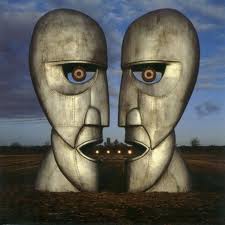It’s the time of year for saving money!
 Did your hear a difference? That’s a question audiophiles
Did your hear a difference? That’s a question audiophiles
ask themselves over and over again. Did you hear a difference between this
preamp and that preamp, this DAC and that DAC, this speaker and that speaker –
you get the idea. Of course this begs the question, “Differences in what?” Now we
turn to the Lexicon of audio terms and definitions, largely formed by J. Gordon
Holt, who spent over fifty years puzzling about this very same question – “Did I
hear a difference?”
Sometime, somewhere, I read a rather pithy analysis of the
audiophile mind, “that audiophiles make small sonic differences into large ones
and large differences into small ones.” I’ve walked into rooms at shows and
within a nanosecond recognized that the system was out of phase. I’ve also
walked into a room at the old Chicago CES, heard a marching band and instantly
new it was real, 5 blocks away through a double-pane window. But occasionally
it’s taken me a couple of days to realize a source’s R and L were installed wrong
and the channels were reversed. It’s all about ear training.
Harry Pearson once told me, early in my career, “I can
teach anyone how to listen, but I can’t teach you how to write.” We audiophiles
learn how to listen. It’s an easily acquired skill IF, big if, you are willing
to invest the time to learn how to do it properly – full attention, no
distractions, with a kind of meditative attentiveness that the modern world
seems to have less and less time for. Anything less is merely for background
music – fine as a soundtrack for living, but not by any means suitable for
making subjective quantitative quality assessments.
Like any other form of training, an important part of
“ear-training” is a regular training schedule. I don’t mean every day at 5:00
PM you must spend one hour in the sweet spot, martini in hand, listening,
although that always worked for J. Gordon. But sometime, during every day, you’ve
got to sit down and spend time listening to music. It’s also vitally important
to hear live unamplified music periodically to refresh your auditory memory data
banks. I consider regularly listening to live acoustic music, both classical orchestras
and roots ensembles, is a necessary and important part of my job.
Did I ever tell you how much I love my job?





